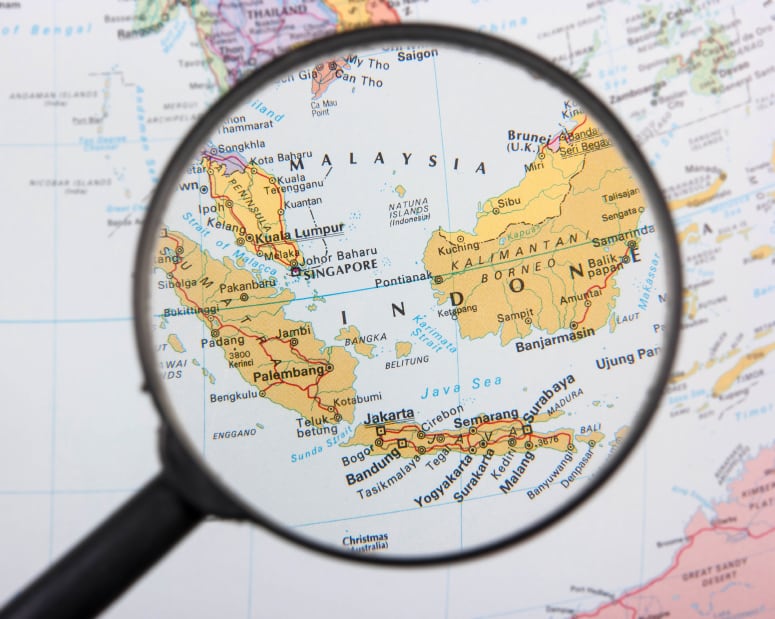Companies IJM Corp Bhd, Genting Bhd, POSCO and its subsidiary Daewoo International Corp were excluded from the Government Pension Fund Global (GPFG), Norway’s national investment fund financed by its oil and gas resources.
The accusations levied against the firms ranged from failure to protect biodiversity to possible illegal deforestation.
Genting and IJM are both members of the Roundtable on Sustainable Palm Oil (RSPO).
The RSPO told us it supported moves from financial institutions to take leadership in pushing for sustainability yet its own role was one of inclusion and consensus.
At the end of 2013, Norway owned shares in IJM worth $12m (€10.88m), equivalent to an ownership interest of 0.49% and shares in Genting amounting to an ownership interest of 0.52%.
At the end of 2014, it owned shares in POSCO worth about $198.1m (€179.57m) and an ownership interest of 0.91%, and shares in Daewoo worth $9m (€8.16m) and a stake of 0.28%.
The Norwegian fund is the world's largest public investment fund, amounting to €795bn in assets. According to the Sovereign Wealth Funds Institute, this was followed by Abu Dhabi, China, Saudi Arabia, Kuwait – all of which except China got this wealth from oil resources.
Under the GPFG’s investment guidelines, it must avoid investments in groups accused of violations of human rights, child labour and environmental damage, as well as companies that produced tobacco or weapons that “violate fundamental humanitarian principles”.
In 2013 the fund pulled its investment in 23 Southeast Asian palm oil companies on the grounds they sourced palm oil unsustainably.
Accusations levied: Primary forest cleared
According to the recommendations of the fund’s Council on Ethics, Daewoo and its parent company POSCO may be responsible for “severe environmental damage” in the conversion of tropical forest to palm plantations on the Indonesian island of Papua New Guinea. The island is famed for its biodiversity and holds 5% of the world’s animal and plant species.
The council said information provided by the company conflicted with that obtained from Indonesian Ministry of Forests maps. It said almost half of the concession area – 15,800 hectares – appeared to be covered by primary forest that had not been logged previously.
It also said satellite images showed an “abnormally large number of fire hot spots” in Daewoo’s area, which suggested land was cleared by burning.
The company denied the allegations and said this was due to worker negligence.
South Korean steel producer POSCO owned 60% of Daewoo, which had an 85% share of Indonesian plantation company IPT Bio Inti Agrindo.

IJM Plantations was accused of failing to reduce the loss of biodiversity at its 35,000 hectare plantations in East Kalimantan, Indonesia – an ecoregion known for its rich biodiversity and large number of endemic and endangered species.
The company said it would begin working towards RSPO certification standards in 2018 but Norway said this seemed to be “an unusually long timescale”.
Similar grievances were reported for the RSPO timeline for Genting’s 150,000 hectare plantations in Kalimantan. From 2008-2012, 23,000 hectares of the company’s land was cleared.
“The Council finds that the company’s lack of transparency, the fact that the concessions are located in ecologically important regions, and that the company appears to be clearing forest in good condition and peatlands, entail an unacceptable risk that the conversion of forest will have severe and irreversible impacts on biodiversity and ecosystems in the region,” the council said.
The Council of Ethic’s full recommendations on IJM can be found HERE, POSCO and Daewoo HERE and Genting HERE.
Asian banks needed
Stefano Savi, RSPO global outreach and engagement director in Kuala Lumpur, told us: “It’s important we see more financial institutions taking action on palm. We definitely see them playing a key role, but more local institutions in Asia are needed too.”
The RSPO supported such financial pressure, but the RSPO itself would not achieve its “vision of market transformation” by pushing companies out in the cold.
Savi said the movement toward sustainable palm also had to be global and could not consist of European players alone. The danger with this latest decision by Norway, he said, was that the money lost from the European backer would be quickly replaced by a new local financer meaning there was “no change on the ground”.
Of RSPO’s 855 members, 13 of these were international banks. Savi said it was now trying to engage local Asian banks.
